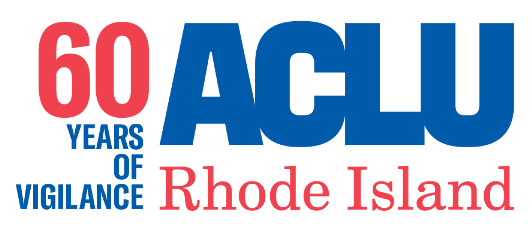
ACLU OF RI FILES FIRST AMENDMENT LAWSUIT OVER STATE’S DISCRIMINATION AGAINST NON-FICTION AUTHORS
Should a decision as to whether a Rhode Island author is entitled to a sales tax exemption depend on whether she has written a fictional murder mystery as opposed to an exhaustive history of the state? That is the question at the crux of a federal lawsuit the ACLU of RI filed today, challenging the state Division of Taxation’s position that a special sales tax exemption for Rhode Island authors applies only to works of fiction, and not to non-fiction, because non-fiction is not “creative and original.” The lawsuit, filed by ACLU of RI cooperating attorney Lynette Labinger, argues that making such a distinction on the content of the work violates the First Amendment’s guarantees of freedom of speech and freedom of the press.
The law at issue, enacted by the General Assembly in 2013, is designed to promote the work of local writers and artists. It exempts from the sales tax “original and creative works” sold by writers, composers, and artists residing in Rhode Island. At some point, however, the Taxation Division, in consultation with the RI State Council on the Arts (RISCA), determined that non-fiction books are not “original and creative works,” and therefore not eligible for the tax exemption.
Last October, ACLU of RI executive director Steven Brown wrote to the Division and RISCA, claiming that this distinction raised “serious and significant constitutional concerns.” Noting that the statute specifically exempts from taxation “a book or other writing” along with seven other types of artistic work, Brown wrote:
“To the extent that Division officials are deciding that non-fiction writing is not ‘original and creative,’ there is no justification in the statute’s language for such a reading. It is also a judgment wholly unsupported by any meaningful understanding of the writing process, whatever the genre, and places the Division in the dubious role of making wholly subjective, and ultimately arbitrary, determinations about works of art.
“There exist whole fields of writing that don’t fit neatly into either category. The Division of Taxation has no business deciding whether ‘non-fiction novels’ like Norman Mailer’sThe Executioner’s Song or Truman Capote’s In Cold Blood are entitled to a sales tax exemption for the author based on a person’s determination as to whether they are novels or works of non-fiction. . . How would the Division treat an award-winning book like Persepolis, which is a graphic autobiography – non-fiction told in drawings? Why is a dull and wholly derivative piece of fiction automatically deemed ‘original and creative’ where Charles Darwin’s revolutionary evolutionary theory in On the Origins of Specieswould never be?”
Rather than repudiate this distinction, the state’s Tax Administrator and RISCA responded by saying only that the two entities would “work together to ensure” that their procedures comply with the law.
Today’s lawsuit challenging the agencies’ position was filed on behalf of four plaintiffs:
- The Association of Rhode Island Authors (ARIA), a non-profit organization whose membership consists of about three hundred Rhode Island writers, and whose mission is to raise awareness of, and promote, local authors, and educate students about the publishing industry.
- Steven Porter, the President of ARIA, who has received an exemption for fiction books but was advised by RISCA that his non-fiction work would not qualify for a sales tax exemption.
- Paul Caranci, who has written numerous non-fiction books on a variety of topics, including histories of North Providence, political corruption in the state, and Rhode Island’s last execution, but who, like Porter, was told the exemption applied only to works of fiction.
- Lucie Contente, a local writer of both fiction and non-fiction books, who has received a sales tax exemption for her works of fiction, but not granted an exemption for her non-fiction books.
The lawsuit seeks a court order barring the state from excluding non-fiction works from the sales tax exemption.
Quotes from participants in the lawsuit Association of Rhode Island Authors v. Savage:
Steven Porter, plaintiff and president of the Association of Rhode Island Authors: “Although the intent behind the original statute may have been a good one, in practice it has created a profoundly unfair situation for the published writers who live and pay taxes in our state. ARIA has maintained from the beginning that treating books and authors of fiction and poetry differently than books and authors of non-fiction was not only a clear violation of their rights, but was illogical on its face. It is our sincere hope this matter can be rectified quickly on behalf of all our state’s talented authors.”
Paul Caranci, plaintiff: “There is no question that works of non-fiction can be every bit as artistic in nature as works of fiction and poetry. Writing history, after all, is the art of telling even the occasional mundane story with an artistic flare that lights up the senses, making the reader feel that he/she has been transported to a different and distinct time and place. The interpretation of the statute granting tax relief to authors of certain works while excluding writers of other works from the benefit, creates an unlevel playing field within the writing community and appears discriminatory at best.»
Steven Brown, ACLU of RI executive director: “Any reputable biographer or historian should take great offense at the idea that their end product of often thousands of hours of work is not ‘original and creative.’ Just as importantly, under the First Amendment, the government does not have the authority to make an arbitrary distinction like that.”
Lynette Labinger, ACLU of RI cooperating attorney: “In drawing a line between fiction and non-fiction as to what qualifies for the state sales tax exemption, the Division of Taxation has demonstrated that it is ill-equipped to make judgments about what is original or creative. Its actions cannot withstand scrutiny under the First Amendment.”

